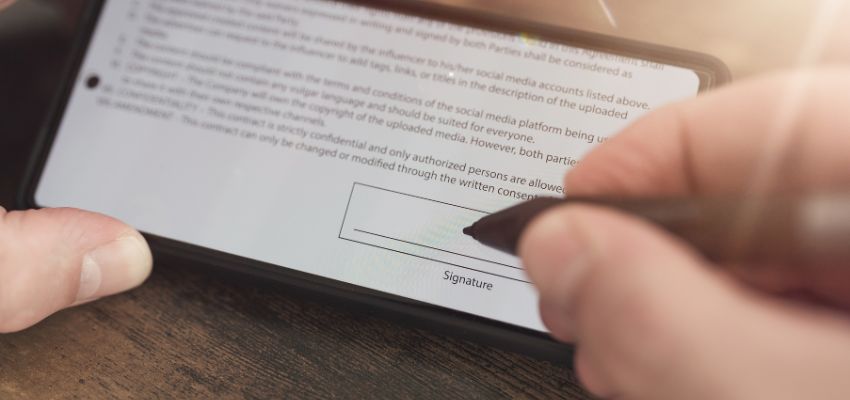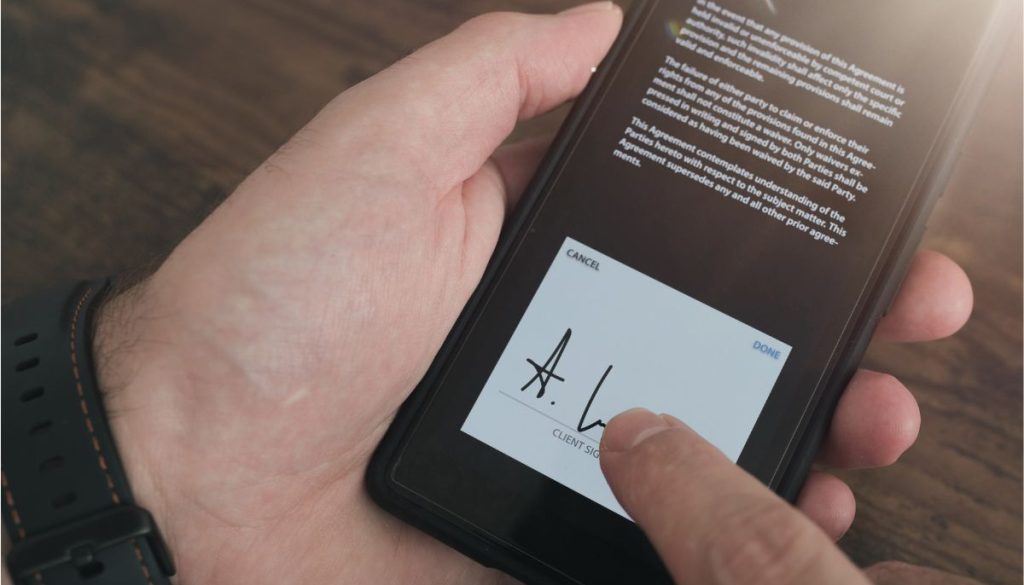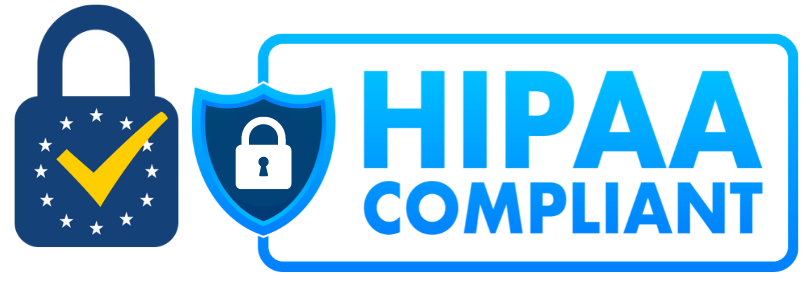What Is a Signature Block and Why Does It Matter
Ever found yourself squinting at the end of an email or PDF, wondering “Is this even legit?” That’s where the signature block comes in, a small detail that packs a serious professional punch. Whether you’re closing a deal, emailing a client, or sending a contract, your signature block does more than sign off, it builds trust, confirms identity, and seals the moment.
But here’s the thing: most people either overlook it or use it wrong. So what is a signature block, really? And why does it matter so much today? Let’s break it down and show you how to use it like a pro.
What is a Signature Block
A signature block is more than just a name at the bottom of a page, it’s a digital handshake. Whether in an email or a contract, it’s that polished section with your name, title, and contact info that makes everything feel legit. Think of it as your document’s business card, it represents you, confirms your authority, and helps others connect with you easily.
In an age where trust is currency, your signature block adds weight to your words. It’s not optional anymore, it’s your digital presence in black and white.
What’s the Purpose of a Signature Block
Ever opened a contract and wondered “Who signed this?” That’s exactly the problem a signature block solves. It clearly identifies who’s speaking, confirms their role, and offers a reliable way to follow up. In legal or professional spaces, that clarity isn’t just helpful, it’s crucial.
A good signature block also adds authority, makes communications feel personal, and shows that you mean business. It’s the quiet detail that turns a casual message into a credible one. Whether you’re closing deals or making decisions, the signature block says, “You can count on this.”

What Are the Standard Components of a Signature Block
A strong signature block has all the right parts in the right place. It usually includes your full name, job title, company name, phone number, email, and sometimes your physical address. These elements help the reader quickly know who you are, what you do, and how to contact you.
It’s like a quick intro that runs on autopilot. Bonus: in emails, you can even include a logo, calendar link, or social media handle for more impact. This structure is your foundation, keep it clean, consistent, and complete.
Signature Blocks in Legal and Formal Documents
In legal settings, the signature block is non-negotiable. It’s how parties prove who agreed to what and when. Contracts, affidavits, and agreements rely on clear blocks with names, titles, dates, and sometimes witness or notary details.
These aren’t just formalities, they’re safeguards. Think of them as the official stamps that keep documents enforceable and airtight. Miss a detail, and you could open the door to disputes. In high-stakes paperwork, a properly formatted signature block isn’t just smart, it’s legally essential.
Types of Documents Using Signature Blocks
Signature blocks show up everywhere, from business emails to billion-dollar contracts. They’re used in financial agreements, healthcare forms, academic papers, and government records. Why? Because every important document needs to show who’s involved and that they consent to the content.
Whether you’re leasing an apartment, authorizing surgery, or approving a research grant, signature blocks are the line between casual and contractual. Each format may look a little different, but they all serve the same purpose: to legitimize and organize.

Different Formats of Signature Blocks
Not all signature blocks are created equal. Some are simple, just a typed name and title. Others go all-in with company logos, QR codes, or clickable links. In digital documents, you might see signature fields where users apply e-signatures with a tap.
Legal documents might have multiple lines for witnesses and notaries. The key is choosing the format that fits the context. Email? Keep it clean and informative. Contract? Add more formal elements. Digital signature? Use secure platforms with encryption. Format isn’t just about looks, it’s about function and trust.
What Are the Benefits of the Signature Block
Here’s the kicker: signature blocks do way more than people think. They create identity, build trust, and speed up communication. They help ensure compliance, reduce risk, and reinforce your brand in every interaction.
In digital workflows, they save time and keep things moving. In regulated industries, they help you meet legal standards. And for anyone juggling multiple roles or clients, they serve as a clear, consistent sign-off. Don’t underestimate this small space, it might just be the most powerful square inch of your document.
In fact, research shows that 33.1% of people say a signature block builds trust in emails, and 95% of businesses use or plan to use e-signature tools. This highlights how signature blocks are no longer just nice-to-haves, they’re essential for building credibility, ensuring legal protection, and keeping workflows smooth in today’s digital world.
FAQs
What is the purpose of a signature block?
A signature block shows who sent the message and how to contact them. It makes your document look professional and clear.
What is a signature and why is it important?
A signature is your name written in a special way to show that something is from you. It helps prove that you agree or approve something.
What are the benefits of having a detailed signature block?
A detailed signature block gives your name, job, and contact info so people can reach you easily. It also makes your emails and papers look trustworthy.
Why do signatures matter?
Signatures matter because they show you agree to something and make things official. They help stop people from changing things without permission.
Why is a signature important in life?
A signature is important because it shows who you are and what you agree to. It helps you sign papers like school forms, jobs, and bank stuff.
Final Thoughts
A signature block may look small, but it does big things. It shows who you are, what you do, and how people can reach you. Whether you’re sending an email or signing a big contract, your signature block makes you look more serious and professional.
It also helps others trust your message. Want to make signing documents easier and faster? Try AiSign. You can create and send contracts online, sign from your phone, and keep everything safe in one place. No paper, no mess, just fast, smart signing. Start your free trial today at AiSign.ai.
Try AiSign Free For 30 Days, No Credit Card Required
Experience ease and efficiency in managing your business contracts. Our platform lets you create contracts with AI-powered tools, send and sign documents online, and more. Say goodbye to paperwork complexities and enjoy streamlined workflows. AiSign’s tools are designed for freelancers, small businesses, and large corporations. Sign up today for a free 30-day trial.

About The Author
Rei Bayucca is a passionate writer based in the Philippines. When not writing, Rei enjoys spending time with her family, cooking, and exploring the beautiful landscapes of her home country.





